GDG Summit 2025, Berlin
Topics:
- community
- event
- google developer groups
As organisers of GDG Douglas, hosting Isle of Man tech meetups as part of the wider Google Developer Group EMEA initiative, Darren and Harley were thrilled to be invited by Google to join the GDG Summit 2025 on 24 June 2025.
Hosted by Google in Berlin Mitte at the fantastic Alte Münze venue (formerly a coin minting facility with a history dating back to the 13th century), the facility was well suited to accommodate the variety of activities put on by Google. As a dynamic space for art, culture and events, it was equipped to accommodate the 400+ GDG organisers arriving from across Europe, Middle East, and Africa.
An early start allowed us to collect badges, catch up with old friends and fuel up for the day on the ample coffee and catering.
While the day was packed with technical and community-based presentations, perhaps the highlight has to be making so many new friends in quick succession. GDG attendees and Google-staff alike were all so authentically enthusiastic and generous in sharing their time, passions and stories. Shoutouts to Tomasz, Anatoly, Kemal, Hend, Mostafa, Leoš, Vakhtangi, Mario, Lluís, Gregory, Paul, Tashinga, Cristina, Mazlum and Peter!
The day’s events kicked started in earnest with GDG program leaders Alessandro Palmieri, Program Manager and Katya Vinnichenko, GDG EMEA Lead, taking to the stage to welcome all attendees and introduce the day’s activities.
An inspiring presentation from David McLaughlin, Director of Global Developer Ecosystem at Google, helped frame the ever-expanding reach of the GDG community – now counting over 500 chapters and associated groups across the EMEA region.
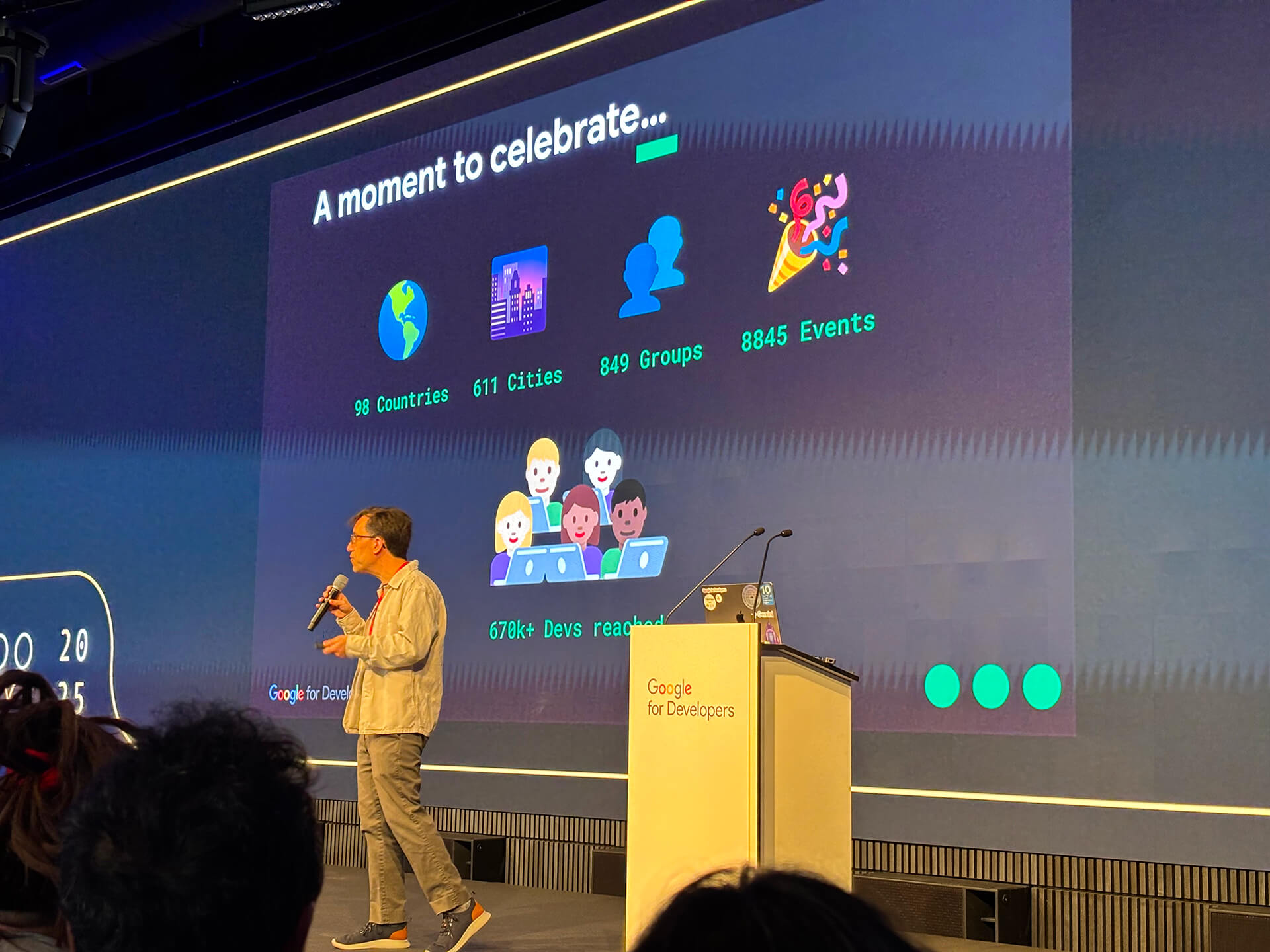
David enthused about the sea of change that AI has brought to the developer community at large and challenged us to design the companies for tomorrow. He proposed that we can do this by approaching the “hard, fuzzy problems” and challenging ourselves to “develop differently” by leaning in to new levels of automation and agentic programming patterns.
Komal Sandu, GDG Global Program Lead, shared more insight into how the GDG program brings Google and the tech ecosystem closer together through products, dev-rel initiatives, developer communities and supporting decision-makers of the industry.
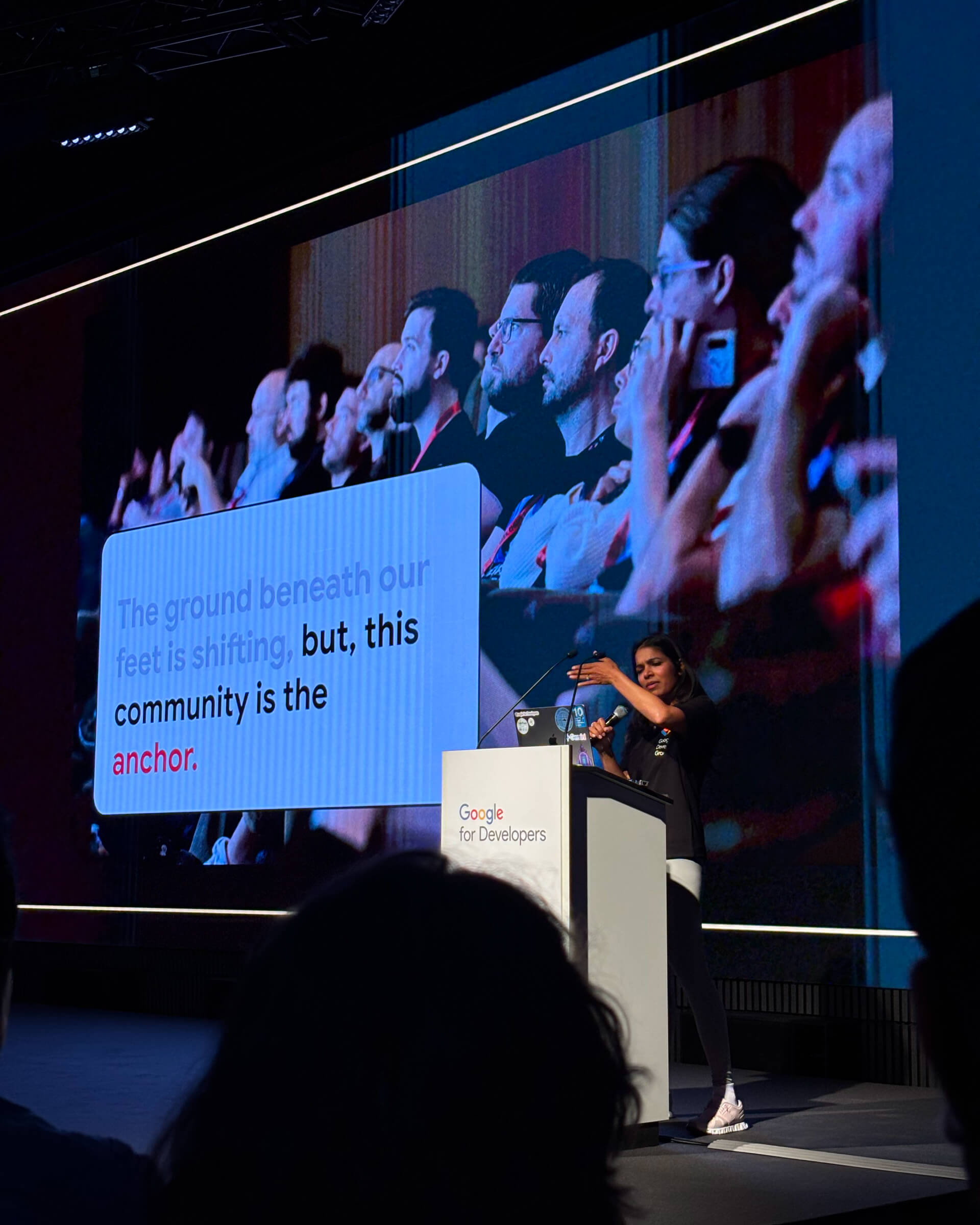
Guillaume Vernade, Developer Advocate for Gemini and Deepmind demoed a live-coded presentation of Google AI Studio’s latest capabilities and expanding ecosystem. His presentations encompassed the latest language, imagery, video and music production capabilities across Google’s model offerings.
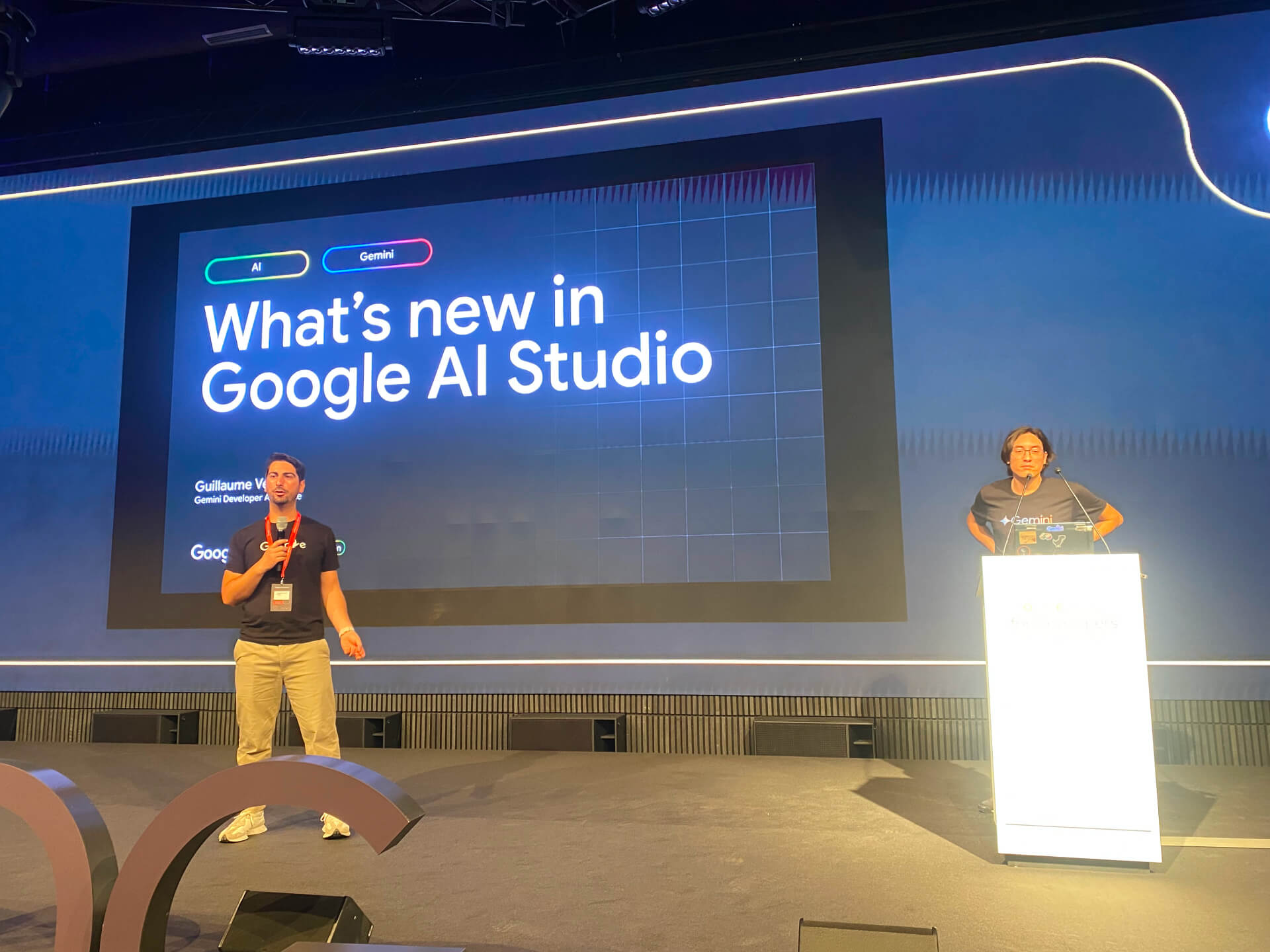
Abdel Sghiouar, Senior Cloud Developer Advocate, focuses in on the practical usage of open LLMs (Large Language Models) for non-enterprise businesses and hobbyists. His deep experience with Kubernetes framed his perspective of seeing great opportunity in training and tuning open models like Gemma 3 into highly bespoke, domain-specific, resource-optimised AI Hypercomputers. Options for deploying to Vertex AI, GCE, GKE and Cloud Run were summarised in conclusion.
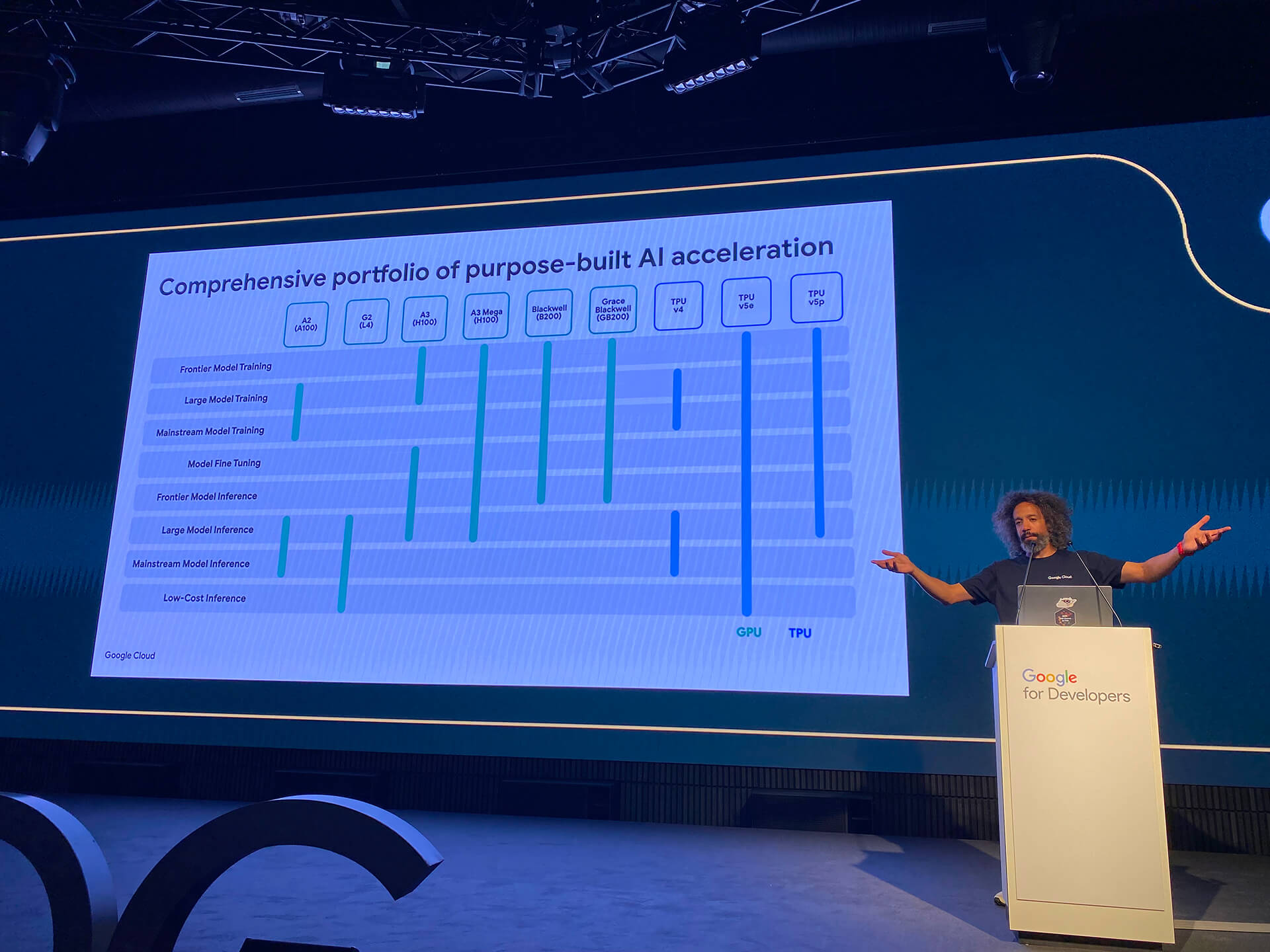
Branching off of the main stage, I attended a code-along workshop hosted by Marina Coelho, Developer Relations Engineer, where she introduced the latest developer workflows in Build AI-powered apps with Firebase AI Logic.
Back on main, Peter Friese, Staff Developer Relations Engineer, delivered a presentation focused on GenKit and MCP for developing beyond prompts. I was fortunate enough to briefly connect after his presentation and quizzed him further to learn how GenKit fits in to a developer’s workflow alongside all the other AI products recently made available. He answered by affirming that it’s a code-first, workflow orchestration, focusing on more evolved input, process, output beyond simple prompting call-and-answer. His response encouraged me to learn more, as it sounded like the right level of abstraction for agencies like ours to be integrating solutions for customers.
The final presentation of the day by Gus Martins, Product Manager and Philipp Schmid, Developer Relations Engineer, profiled the more technical characteristics of open-weighted Gemma 3 model, as well as introduction fine-tuning processes with first party Google tooling and third party options such as Axolotl, HuggingFace, Jax and unsloth.
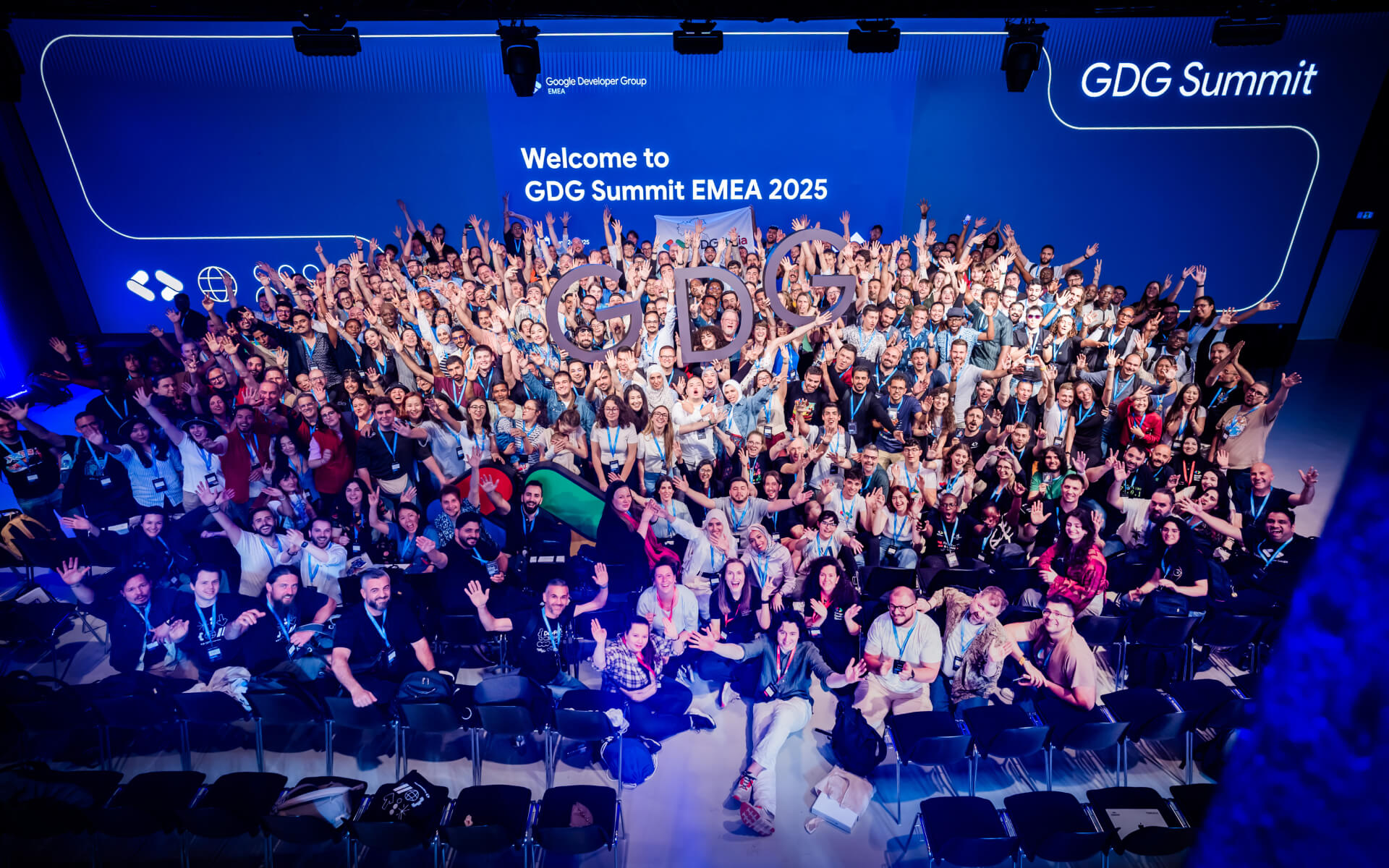
Closing remarks from Katja, followed by an all-in group photo wrapped a really inspiring, educational and social day.
I’m looking forward to next year already!
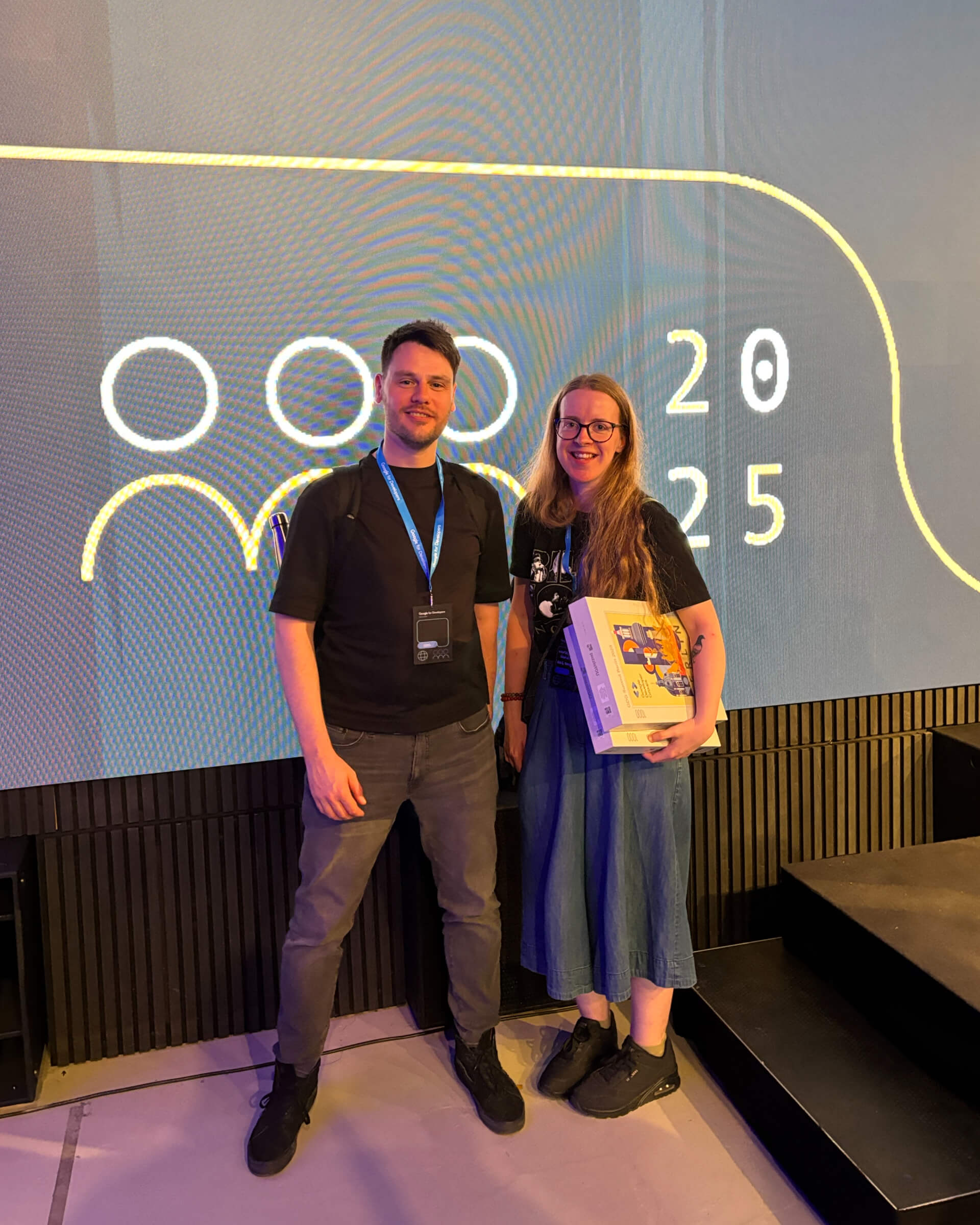
Who wrote this?
-
Darren Barklie
- Fullstack developer
- Lifelong learner
- Music nerd